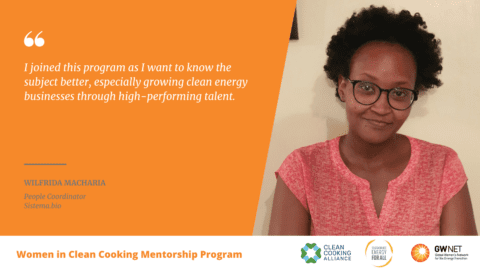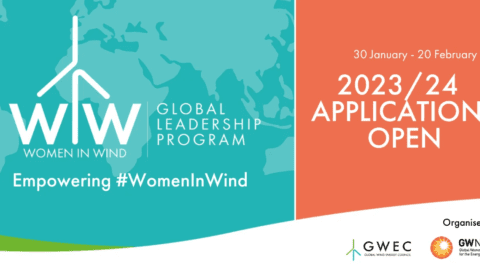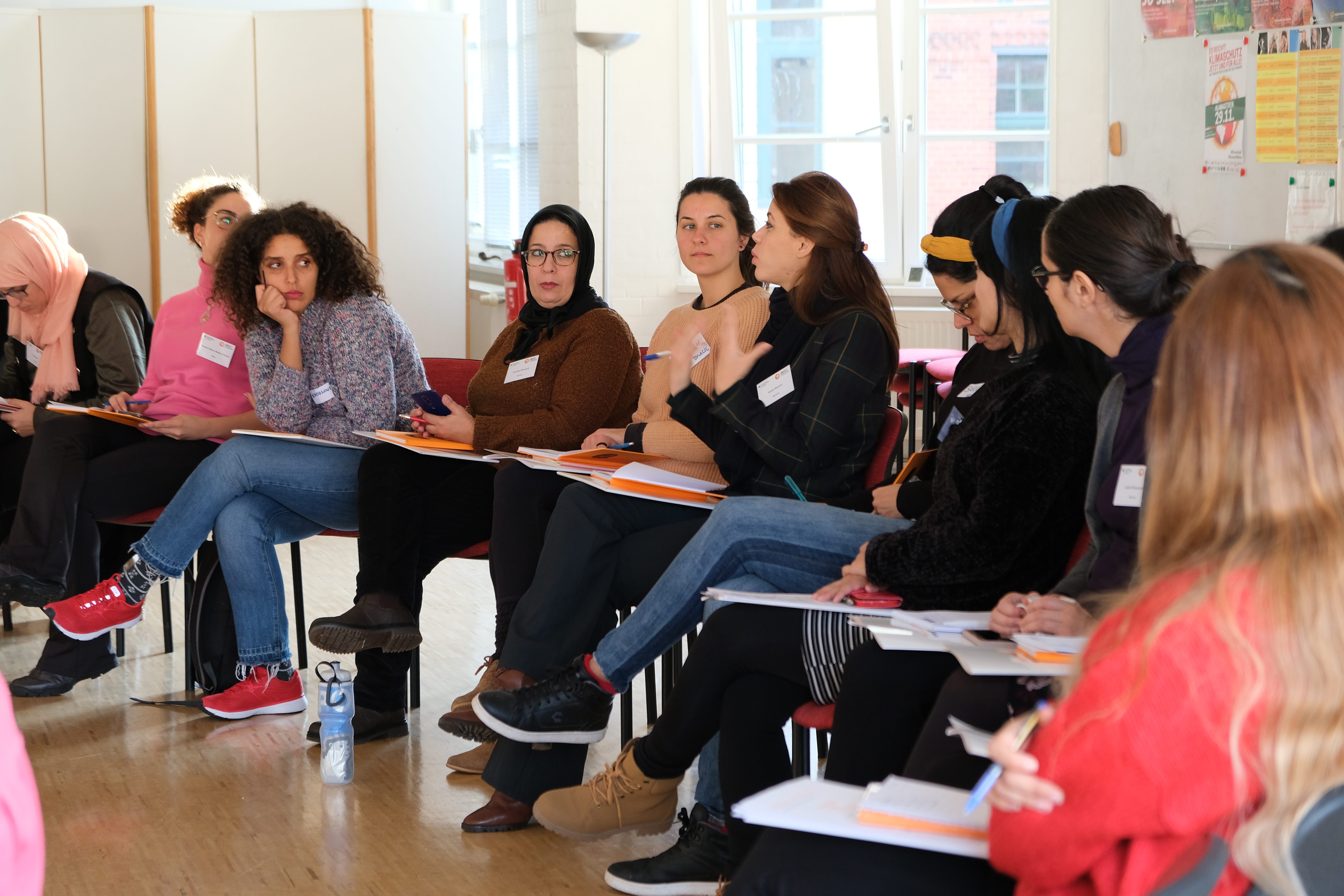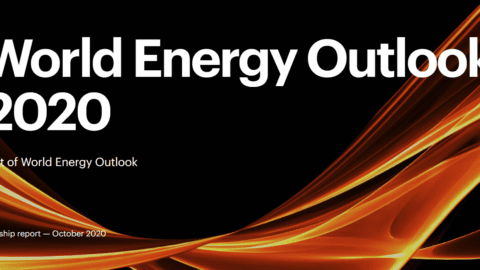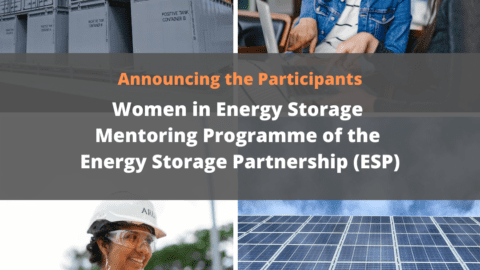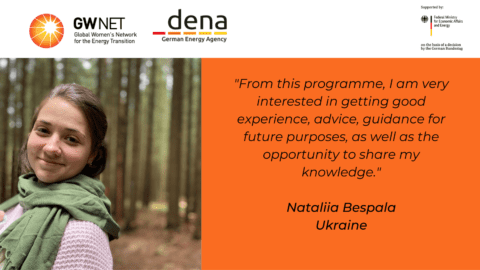GWNET brings you the 1st instalment of the “Meet the Women in the Energy Transition” series which celebrates the work and achievements of the women who are part of GWNET’s 3/2020 Mentoring Programme. This mentoring programme is made up of 26 mentee-mentor tandems, with mentees from over 20 countries. Meet GWNET mentee, Sarah-Melissa Leitner, an advisor on energy policy (focus decentralised renewables), working at GIZ in Rwanda.
1) Tell us a little about yourself. What do you love most about what you do?
Born originally in Germany, I have lived and travelled throughout the world. As such, it is only fitting that I ended up working for the German Development Corporation, which has allowed me to contribute to the energy transition and sustainable development in different countries. The latest “stop” on my journey is Rwanda, where I have been working as an advisor on solar energy for Energising Development since 2018.
Having previously worked on international energy and development policy, I love that my current position allows me to see the direct impact my work has on the lives of Rwandans and local solar companies. At the same time, I am able to experiment with new concepts and approaches for achieving sustainable, universal energy access, thereby providing me with the best of both worlds – conceptual and technical, on-the-ground work.
2) What were your goals when you started working in sustainable energy? Have these evolved?
When I started working in the renewable energy sector I saw its potential to not only contribute to emissions reduction but to also transform the lives of individuals all around the world. Many people don’t realise what impact access to electricity can have on an individual’s wellbeing and income, because they have been fortunate enough to live in countries with stable electricity systems.
My objective has always been to make a positive contribution to people’s lives and the world, which I am currently doing by promoting access to sustainable energy.
3) How has the COVID-19 pandemic impacted the professional goals you set out for the year?
My main professional goal for this year is to successfully implement a new pilot programme, which I have been working on for 2 years. The programme was launched end of 2019 and was taking off as COVID-19 hit Rwanda. The resulting (necessary) restrictions on public life have significantly slowed down the implementation, putting into question whether we will be able to reach our target for this year.
We have been working closely with all partners involved to make the best of the current situation and to adapt procedures and timelines. While we are not yet out of the woods, the support of and collaboration with our partners has made my work worthwhile over the last months. So, get together with like-minded people and put your thinking caps on.
4) What are the opportunities for sustainable energy growth in your country?
Rwanda is abundant in opportunities for the deployment of sustainable energy. The Government of Rwanda has recognised this by making renewable energies, particularly off-grid renewables, a central part of its Rural Electrification Strategy and National Electrification Plan. By 2024, 48% of the Rwandan population will have access to electricity through solar home systems or renewables-based mini-grids.
Grid-connected renewables have also played a significant role in Rwanda’s power generation with hydropower and solar energy making up 52% of Rwanda’s energy mix (REG, 2019). The exploitation of Rwanda’s hydropower resources continues with new projects such as Rusumo Falls Hydro Power Project and Ruzizi III on the way.
Beyond electricity, there is significant potential to reduce the use of traditional biomass through the use of improved cookstoves and cleaner cooking technologies.
5) What challenges have you faced in the sector? Can you tell us how you overcame (or are overcoming) this challenge(s)?
While working in international development, cultural differences as well as the perception and role of women in different cultures have been some of the most prominent challenges in my career. In every country I have had to adapt to the local context, while maintaining what I stand for (particularly as a woman). To achieve this fine balance, I found it essential to observe and find trusted (local) colleagues/partners who can provide insights into the culture as well as feedback on my own behaviour.
6) Why did you join the GWNET Mentorship Programme? What do you hope to achieve?
I believe that one of the best ways to learn is from others. The mentoring programme offers the unique opportunity to connect and receive guidance from women who have walked this path before me and to build on their experience. Only by working together and learning from each other can make the voice of women be heard in the energy sector.
7) What advice would you give to women hoping to join the sustainable energy sector?
Coming from a non-technical background my advice would be: If you are passionate about energy there is a place for you in the sustainable energy sector – no matter your skillset. To truly advance the global energy transition, we need more than engineers. We need lawyers, finance experts, communications aficionados, PR wizards, policymakers, customer relations professionals etc. Don’t be afraid if you are not a technician – you have a role to play. Don’t let anyone tell you otherwise and stand your ground.
Read more about GWNET’s mentoring programmes here.


